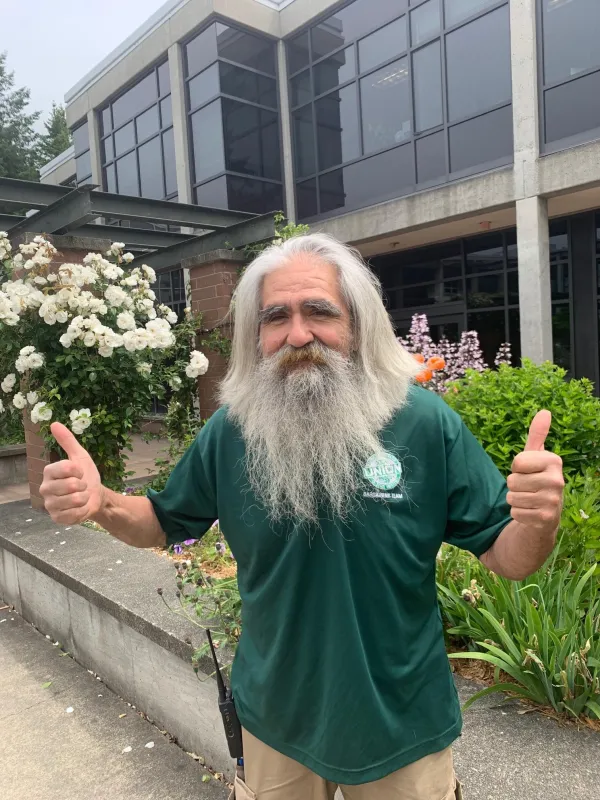Custodians Win at Bellevue College

When management decided to eliminate the custodial night shift at Bellevue College, the custodians fought back—and won.
Shift changes disrupt the delicate balance workers have in their lives between family, second jobs, and long commutes.
Eseta Ropati has been a custodian at Bellevue College since 2016. She spoke of the challenges of raising small children and working at the college.
“Some of us have young children, and as parents, graveyard is the best, even though it’s not something I want to do,” said Ropati. “I’d like to sleep in my bed every night, but I have to go with what fits my family’s schedule. That’s why I sacrifice to work graveyard.”
Eliminating the night shift just wasn’t going to work. The proposal came just a year after the administration agreed in writing to stop disruptive shift changes, and this would have been the fourth such change in two years.
“Every time new management comes in, he or she thinks that [changing shifts] is the best for the college, but in my point of view, what about the people and the needs of their families, and the sacrifices that they make?” said Ropati. “Everybody has families to go home to at the end of the day.”
Mike Ortiz was committed to speaking out, too.
“I was frustrated,” he said. “I thought, ‘Well, here we go again. What do we have to do?’”
Fortunately, Ortiz and his coworkers had a foundation of past work to build on.
Last year, the custodial staff built a strong presence at Bellevue College by taking collective action to counter shift changes. They took their protest, in green WFSE shirts and “Respect” buttons, to a Board of Trustees meeting, where they shared stories of holding down second jobs and caring for their families.
This show of solidarity convinced the employer to back down and agree in writing not to change the shift of any custodian unless requested by that employee.

The petition garnered over 200 signatures in just three days.
A delegation took the petition to the college president, Jerry Weber.
He was adamant that he was going to change the shift.
Ortiz explained how eliminating the night shift would compromise the quality of the custodians’ work. The daycare and gym would particularly suffer, he said, because it’s not possible to clean while they’re operating. The night shift offers the custodial staff their only chance to clean these areas.
Weber countered that the night shift posed safety issues, because there were no supervisors present.
“So I brought up this idea: Why don’t you hire two supervisors, one for each shift— working supervisors, not just someone who sits in the office? They could do quality control,” said Ortiz.
“The president was still somewhat in support of [changing the shifts] when we went away from that meeting,” said Ortiz.
The next step for the activists was to attend the following week’s Board of Directors meeting, bolstered by still more petition signatures from students, faculty, and WFSE members from across the state.
But at the eleventh hour, Weber called. The shift change had officially been cancelled.
“They decided that they’re not going to have the schedule change after all, and that they were also discussing the idea of hiring a supervisor for the graveyard shift. It was definitely a win!” said Ortiz.
Ortiz’ suggestion that the college hire night shift supervisors had been taken to heart.
But the fight isn’t over.
“For me, that’s just the beginning,” Ortiz said. “Because they are trying to do more with less, and I don’t think that’s a valid procedure to operate a campus. We’re still going to push to get the custodial crew up to a proper level, where we can actually clean the campus the way it should be.”
Staffing levels have not kept up with expansion of the college campus.
“Ten years ago, custodial staff had nine more people on it than it does now. On top of that, they’ve added over 100,000 square feet,” said Ortiz. “This has to be rectified. I feel that working people count for something, too.”
Ropati and Ortiz have tasted success with collective action, and they’re not giving up. Standing together, they say, makes the difference.
“It’s important to be in the union so we have backup,” said Ropati.
Ortiz agreed.
“We can all win together, or hang separately,” he explained. “It’s not just a slogan or some ideal. It’s common sense.”
